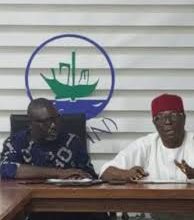Opeifa Pledges Inclusive Rail Transportation System for Persons with Disabilities
Opeifa Pledges Inclusive Rail Transportation System for Persons with Disabilities

By Aliu Joshua
Opeifa has announced plans to integrate persons with disabilities into the rail transportation system, promoting accessibility and equality. This initiative is aimed at providing equal access to transportation services for all citizens, regardless of their abilities.
In a recent statement, Opeifa emphasized the need for an inclusive transportation system that caters to the needs of all citizens. He noted that the integration of persons with disabilities into the rail transportation system is a critical step towards promoting social inclusion and equality.
The initiative is expected to involve the modification of rail infrastructure to make it more accessible to persons with disabilities. This will include the installation of ramps, elevators, and other facilities that will enable persons with disabilities to use the rail transportation system easily.
Additionally, Opeifa plans to introduce specialized services and facilities to support persons with disabilities. These will include accessible ticketing counters, Braille signage, and audio announcements to assist visually impaired passengers.
Opeifa’s pledge has been welcomed by disability rights advocates, who have long campaigned for greater accessibility and inclusion in the transportation sector.
The development is seen as a significant step forward for persons with disabilities in Nigeria, who often face significant barriers in accessing transportation services. By promoting inclusive transportation, Opeifa aims to enhance the quality of life for persons with disabilities and promote equal opportunities for all citizens.







